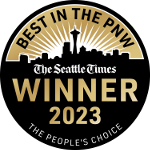As a housing provider, it is important to attract quality tenants, minimize vacancy periods, and take precautions to prevent issues throughout the tenancy. Preparing a rental home for tenants involves more than a light cleaning and making sure everything is in working order. When a home is adequately prepared, it can be marketed well without the distractions of cleanliness or outstanding repairs. By showing the landlord’s intention to maintain a well-cared for home, it encourages tenants to apply who will show a similar level of care. In this article, we will share a comprehensive guide on how to prepare your rental home for tenants.
Cleanliness and Maintenance
Maintenance of the Rental Home
Before a tenant moves in, it is important to have all necessary maintenance completed at the home. This can include routine maintenance such as leaky faucets, broken or burnt-out light fixtures, and damage to walls or flooring. If needed, this may also include a fresh coat of paint or new carpet, as those items may need to be replaced between tenants.
It is also good to check on any major maintenance items that may need to be addressed in the near future. This can include a new hot water heater, a new furnace, or a new roof. Being aware of these larger ticket items can prevent a financial strain when it comes time to repair or replace, and it is generally less time-consuming and less urgent to complete these repairs while the home is vacant, allowing you to obtain multiple bids, etc.
Pest Control
Taking measures to ensure a home is pest-free is an important part of preparing a home for a tenant. A professional pest control company can inspect the property for any signs of pests and recommend a treatment plan if necessary. They have the expertise and equipment to deal with a variety of pests, including rodents, insects, and other unwanted critters. If any pests are found, the landlord should work with the pest control company to remediate the problem areas. It is a good idea to have regular pest control visits to prevent any major pest-related issues at the home. Once you have tenants in the property, it’s important to educate them about ways to prevent pests in the future. A few ways to prevent pests are keeping the property clean and tidy, storing food properly, and identifying signs of the pests coming back.
Cleaning the Rental Home
One of the most important steps in preparing your rental home for new tenants is having it professionally cleaned. Having a clean home can make a big difference in attracting potential tenants and increased rental income. Dusting, vacuuming, mopping, and wiping down all surfaces (counters and floors) is a good place to start. Make sure to deep clean the kitchen and bathrooms, as these are high traffic areas that tend to get especially dirty. Don’t forget to clean the exterior as well! Outdoor spaces such as patios, decks, or balconies need to be swept and kept free of dirt and debris.
Safety and Security
Smoke Detectors
Smoke detectors are critical in keeping tenants safe and minimizing fire damage in the home. They need to be properly installed in order to work effectively. Smoke detectors should be installed:
- One inside each bedroom
- Additionally, at least one per level of the home in a common area such as the hallway outside of the bedroom(s)
- Each “level” includes the basement and attic if applicable
Make sure smoke detectors are installed away from windows, doors, and air vents, as these can interfere with their proper function. Smoke detectors should be tested regularly to ensure they are working properly, and batteries should be replaced at least once a year or when the detector indicates low battery.
It’s always a good idea to consult with your local fire department or building code enforcement agency for specific requirements and recommendations for smoke detector placement in your home.
Carbon Monoxide Detectors
Carbon monoxide detectors are critical to have in all rental properties. Carbon monoxide is harmful when breathed because it displaces oxygen in the blood and deprives the heart, brain, and other vital organs of oxygen. Large amounts of carbon monoxide can overcome you in minutes without warning — causing you to lose consciousness and suffocate. Carbon monoxide detectors should be installed, at minimum, one on each level of the home, including the basement and attic.
Make sure to follow the manufacturer’s instructions for installation and placement, and regularly test and maintain the detectors to ensure they are functioning properly. It’s also a good idea to educate tenants on the dangers of carbon monoxide and the importance of maintaining and testing the detectors.
Security
Secured windows and doors are critical for ensuring the safety and security of a rental home. Locking doors and windows are designed to provide protection from break-ins. These locks are the first line of defense against burglars and intruders.
Landlords also have a legal responsibility to provide a safe living environment for their tenants. Inadequate security measures, such as non-functioning locks, can result in legal liabilities in case of theft or other criminal activities. Insurance companies may also require certain security measures, such as door and window locks, to be in place in order for a policy to be valid. Failure to comply with these requirements may result in a denial of coverage.
A few other security measures a landlord could consider are installing a security system or outdoor lighting. New technology has created much less expensive ways to install cameras and better lighting to keep tenants and their belongings safe.
Tenants can protect their belongings by obtaining renter’s insurance. This gives them financial protection in the case of damage or theft to their personal items (clothing, furniture, etc.).
Overall, ensuring necessary security measures are in place is an essential aspect of providing a secure and safe living environment for tenants in a rental home. These items should be done before a tenant moves in and are critical to preparing the property.
Appliances
Many properties in the greater Seattle area come with most appliances included in the rent. This includes refrigerator, oven, stove, and typically a microwave, dishwasher, and washer / dryer. It is the responsibility of the landlord to provide functioning appliances in a rental home before renting it out. Because people rely on these appliances for everyday use, they need to be clean and in good condition for tenants to use.
If the appliances in the home are old or worn, it may be worth considering replacing them. Upgrading appliances can make a big difference in the appeal of the property. Consider replacing them with newer, more energy-efficient models and be sure to look into rebates from local utility companies. It is a very time-sensitive, and potentially more expensive, problem to address appliance repairs or replacement once the home is tenant-occupied.
Communication and Documentation
Tenant Screening
Once the property is ready to be marketed, it is important to have a clear and objective application and screening process in place for prospective tenants that complies with Fair Housing regulations. This could include credit check, background check compliant with local ordinances, employment verification, and/or rental history verification. A landlord must familiarize themselves with federal, state, and local Fair Housing laws that prohibit discrimination on the basis of race, color, national origin, religion, sex, familial status, disability, and many other protected classes. These laws apply to all stages of the rental process, including advertising, screening, and selection. All applicants should be screened in the same way and using the same criteria. Do not ask questions that could be interpreted as discriminatory, such as questions about an applicant’s national origin or disability.
Lease Agreement
When a tenant’s screening has been approved, it is time to prepare the lease. Having the terms for the lease in place is crucial to a successful lease signing with the new tenants. These terms can include rental price, security deposit amount, move in/move out dates, and the late payment policy. It is important to know the local regulations for rental properties, as there are laws in place that can impact these terms. Lori Gill & Associates is proud to have created a lease that benefits both the landlord and the tenant and clearly outlines each of the parties’ responsibilities.
Communication with Tenants
Landlords must be available for tenants in handling their requests and emergency matters. Prompt communication is necessary, even though the issue may not be able to be resolved immediately. Email, phone calls, and an online portal are the most common methods of communication. It is also a good idea to provide a tenant with emergency contact information so they can reach someone at all hours of the day and night. If a landlord is out of the state or country, they should provide a tenant with backup contact information for someone local.
It is also helpful to have a list of preferred vendors to feel confident the work is being done quickly and done well.
How Lori Gill & Associates Can Help
In conclusion, preparing a rental home for tenants requires careful planning and attention to detail. Landlords who take the time to adequately prepare their rental properties before listing them on the market are more likely to attract quality tenants and reduce vacancy periods. By ensuring that the home is clean, well-maintained, and free of outstanding repairs, landlords can demonstrate their commitment to providing a safe and comfortable living environment for their tenants. Ultimately, investing in the preparation of a rental home can pay off in the form of a long-term, positive relationship between landlord and tenant, and a steady stream of rental income for the landlord.
Contact Us
Frequently Asked Questions
What should I do if I don’t have time to clean my rental home before my tenants move in?
If you don’t have time to personally clean the home before tenants move in, you should hire professional cleaners. It is important to turn over a clean home to new tenants.
How often should I schedule routine maintenance for my rental home?
The frequency of routine maintenance for a rental home depends on various factors such as the age of the property and its location. It is recommended to schedule routine maintenance (gutter cleaning, furnace tune-up, etc.) at least once a year.
Should I provide furnishings for my rental home?
This is a personal decision, however, many tenants move into rental properties with their own belongings and prefer properties to be vacant.
Can I charge my tenants for damages?
In most cases, a landlord may charge a tenant for damages beyond normal wear and tear. It is important to carefully review your lease agreement and local laws to ensure that you are following the correct procedures and are within your legal rights to do so.



